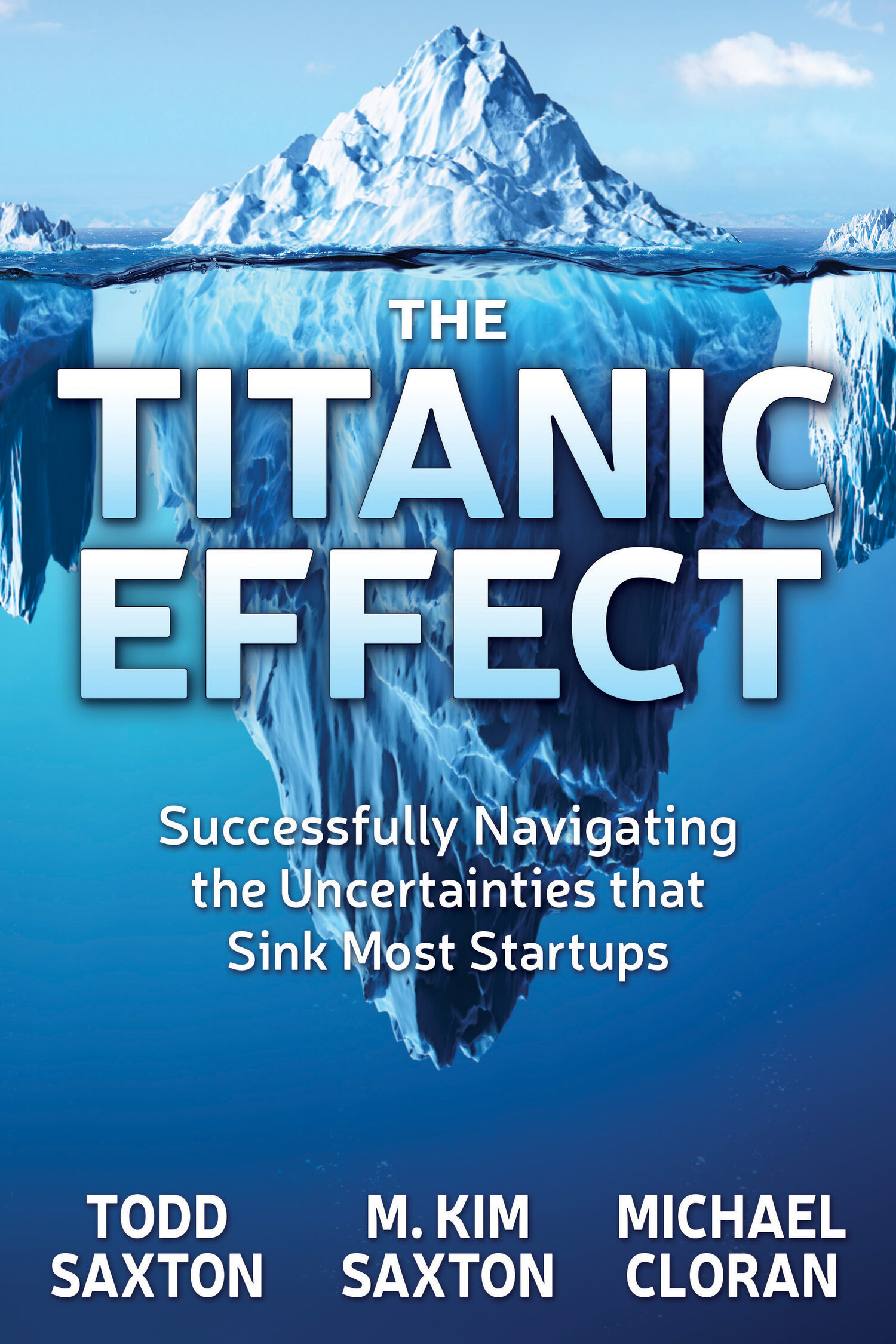We recently watched the Netflix original limited series “Self Made,” inspired by the life of Madam C.J. Walker. We do understand that elements of the story were adapted for entertainment value, but it was nevertheless an inspiring and educational story about a truly self-made millionaire. In fact, Madam Walker not only was the first self-made woman American millionaire, she also happens to have been the first self-made Black millionaire. We found it interesting to note that she moved her company to Indianapolis in 1910 while the Titanic was being built. There are several key takeaways we wanted to share from the series that we believe are important for entrepreneurs and startup everywhere. Oh and if you haven’t watched Self Made, we highly recommend it: 4 episodes of 45 minutes each are well-worth the time. It’s a good story, good character development, and very well acted.
Madame C.J. Walker
Leverage PEP (Passion, Experience, and Persistence). In The Titanic Effect, we identify PEP as a key ingredient for successful entrepreneurs. Madam C.J. Walker (born Sarah Breedlove) developed a strong sense of herself, the products she wanted to make, and what they would do for her customers. She personified PEP. She had a Passion for more than helping Black women manage their hair. She also wanted to provide opportunities for women of color. This passion also created a high degree of independence and commitment to her values. She certainly had her own Experience, as well as those of others, to draw on in building her suite of products. She did not stray from the insight those experiences yielded. And perhaps most of all, she had the Persistence and the grit to persevere through a facility fire, failed relationships, a vicious and unprincipled competitor, and other challenges. If you want a role model for PEP, you do not have to look any further!
Embrace competition. Some founders love to extol their startup’s unique role as the only one in their market, with “no competition.” We’ve discussed the dangers of this approach before. But competition gives your customers a frame of reference and also makes you stronger. From her origin story dealing with her own hair challenges, Madam Walker found an employer, then a potential partner, and then a rival in Annie Turnbo Malone. As the movie portrays it, Walker initially offered to partner with Annie, but was rebuffed as she did not have “the look.” After a few attempts to work together, Walker eventually took the core concept of the product, expanded on it, and prospered. But the two continued to “one-up” each other for years. Having a strong competitor makes you stronger. It can also help build the market. As it happens, Malone also became one of the first self-made women millionaires in America.
Get the right advocates. Early in her journey, Walker had the opportunity to connect with Booker T. Washington. She “gritted” her way into a conference where Washington was presenting. Unfortunately, his negative views of women entrepreneurs became evident, and she did not get his endorsement. In a fortuitous twist, however, how Walker handled that exchange later helps her secure the support of W.E.B. Du Bois. Getting the right advocates is something we stress as an essential part of the entrepreneurial process. The right advocate can create positive inflection points with customers, distribution partners, investors, and others. Walker’s PEP allowed her to create and build rapport with such potential advocates.
Experiment. While Walker may have taken the original product idea from her interactions with Turnbo, the core product and resulting lines of related products came from countless hours of experimenting with different ingredients and formulas. Those experiments also involved actually trying the product on herself, family members, and others. Experimentation is an essential part of finding product/market fit. With a grounding in natural ingredients and product quality, Walker was able to experiment into an extended product line that grew revenue and provided leverage to get on store shelves. Founders must always continue to think about their product line as an evolving experiment that includes functionality, what benefits it produces for customers, and who will most appreciate those benefits and pay for them.
SELL! SELL! SELL! From the very beginning, a hallmark of Walker’s approach to business incorporated a sales mentality that not just asked for the business—she demanded it. With a strong narrative to raise awareness and interest, a knack for creating rapport with potential customers, and smart merchandising, Walker closed deals. Initially, this was with buyers of Turnbo’s products. It evolved into her own customers as well as investors and other supporters. As Walker’s business grew, she sold the promise of independence and prosperity to her lead salespeople, using the Walker System to grow the business. At its peak, the Walker empire employed thousands of women of color and trained more than 20,000 over time. This model was a key component to business growth. Asking for and demanding the business is uncomfortable, but it is the key part of closing deals. Founders must be willing to take this step with customers and supporters.
Many entrepreneurs encounter the challenges partially captured above and described in the series, which we identify as sources of “hidden debts” in the parlance of The Titanic Effect. To see Madam Walker successfully navigate these debtbergs as a Black entrepreneur more than 100 years ago was particularly powerful and inspiring. We would like to think that now, a century later, starting a company under her circumstances would be much easier. Sadly, not much has changed in many ways, particularly for Women and Founders of Color. Such founders are still far underrepresented when it comes to startup generation overall, startup funding, and venture capital.
Icebergs of hidden debt still threaten would-be founders of all types. But look to women like Madam C.J. Walker for guidance and inspiration to navigate through your own iceberg-laden oceans.


